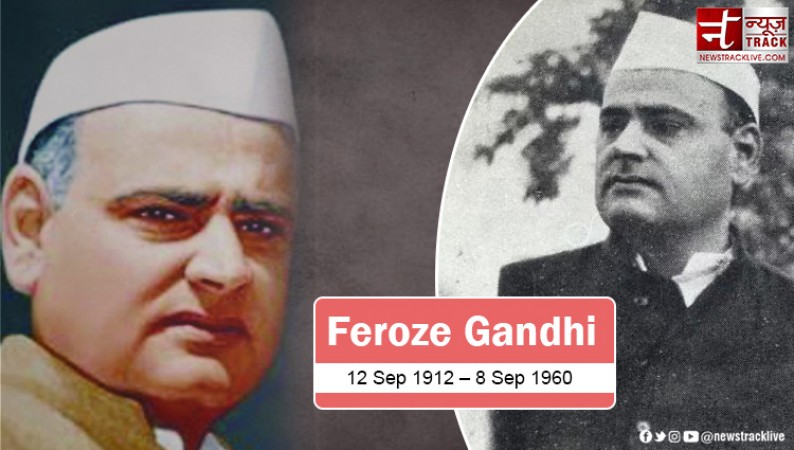
September 12 marks the birth anniversary of Feroz Gandhi, a prominent figure in India's political history. Born in 1912, Feroz Gandhi played a pivotal role in shaping the nation's political landscape. Just a few days ago, on September 8, India commemorated the death anniversary of this illustrious leader. As we celebrate his birth anniversary, let us delve into the life and contributions of Feroz Gandhi, a man whose legacy continues to inspire generations.
Early Life and Education
Feroz Gandhi was born in Mumbai to a Parsi family. He came from humble beginnings and received his early education in Mumbai. His quest for knowledge led him to study at the London School of Economics, where he honed his understanding of economics and politics. His time in London broadened his horizons and exposed him to various ideologies, setting the stage for his future contributions to India.
Marriage to Indira Nehru
Feroz Gandhi's life took a significant turn when he married Indira Nehru, the daughter of India's first Prime Minister, Jawaharlal Nehru, in 1942. This union not only tied him to one of India's most influential political families but also provided him with a platform to make a lasting impact on the nation.
Political Journey
Feroz Gandhi's political journey began with his election to the Indian Constituent Assembly in 1947, where he actively participated in the framing of the Indian Constitution. He was a strong advocate for civil liberties and fought for the inclusion of fundamental rights in the Constitution.
One of his notable achievements was the successful passage of the Private Member's Bill, the Parliament (Prevention of Disqualification) Act in 1951, which aimed to safeguard the rights of elected officials. This law allowed him to serve as a Member of Parliament despite being a managing director of a newspaper company, thus setting a precedent for many future politicians.
Also read:
Advocate for Progressive Reforms
Feroz Gandhi was a vocal proponent of progressive reforms in various spheres of Indian society. He played a crucial role in advocating for workers' rights and social welfare policies. His efforts led to the establishment of the Welfare State in India, focusing on improving the lives of the marginalized and underprivileged.
Feroz Gandhi also championed transparency in government and worked tirelessly to bring about reforms in the financial sector. He is remembered for his role in exposing corruption in the LIC (Life Insurance Corporation) and leading investigations that uncovered financial irregularities.
Legacy
Feroz Gandhi's untimely death in 1960 was a loss to the nation, but his legacy lives on. His commitment to democracy, civil liberties, and progressive reforms continue to inspire generations of leaders and activists. His contributions to the Indian Parliament and the nation as a whole serve as a reminder of the importance of principled politics and dedication to the welfare of the people.
On the birth anniversary of Feroz Gandhi, we remember a man who dedicated his life to the service of the nation. His legacy is one of progressive thinking, unwavering commitment to democracy, and a deep concern for the welfare of the people. As we commemorate his birth anniversary, let us reflect on the values and principles that he stood for and strive to uphold them in our own lives and in our society. Feroz Gandhi's life and work continue to be a beacon of hope and inspiration for all of us.